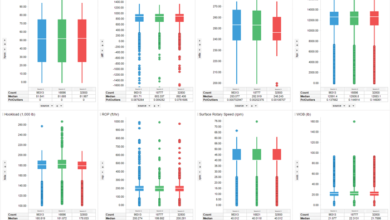News Cuttings
IADC Advanced Rig Technology Committee issues Drilling Control System Alarm Management Guidelines
 The IADC Alarm Management Work Group, under the auspices of the IADC Advanced Rig Technology Committee, recently produced the IADC Drilling Control System Alarm Management Guidelines.
The IADC Alarm Management Work Group, under the auspices of the IADC Advanced Rig Technology Committee, recently produced the IADC Drilling Control System Alarm Management Guidelines.
The guidelines cover philosophy, documentation, master list of alarms, management of change and rationalization for drilling control system alarms. It is intended to assist system suppliers and drilling contractors to improve alarm treatment, as defined by job responsibility.
The guidelines do not cover control system design. Instead, they focus on understanding applicable standards, alarm philosophy, personnel responsibilities regarding drilling control system alarms, types of alarms, real-time use of alarms, management of change and more.
Click here to access the guidelines in the IADC bookstore.
IADC Drilling Matters website updated
IADC continues to expand the DrillingMatters.org multimedia website with the addition of two new video modules.
One module teaches viewers “Who’s Who in the Drilling Business,” showcasing the roles of operators, drilling contractors, oilfield service firms and equipment manufacturers.
In a second new module, “Life on a Rig,” drilling contractor employees discuss their experiences living and working on a drilling rig and how they achieve a work-life balance.
Click here to view the IADC Drilling Matters website.
Development of USCG/NIST Cybersecurity Framework ‘MODU Profile’ launched at IADC

IADC has helped the US Coast Guard (USCG) and the National Institute of Standards and Technology (NIST) National Cybersecurity Center of Excellence (NCCoE) to launch development of a new Cybersecurity Framework Profile for MODUs. The work was done during a two-day joint meeting, which also included API, held during January in Houston. The profile is designed to assist MODU operators in using NIST’s voluntary 2014 guidelines “Framework for Improving Critical Infrastructure Cybersecurity.”
As envisioned, the profile will help offshore stakeholders assess and mitigate cybersecurity risks in the mission areas they share with the USCG. The MODU profile follows development by USCG and NCCoE of a similar profile for maritime bulk-liquid transfers.
NIST developed the Cybersecurity Framework in response to President Barack Obama’s Executive Order 13636, “Improving Critical Infrastructure Cybersecurity.” The voluntary framework, the result of industry-government collaboration, addresses “cybersecurity in a cost-effective way based on business needs,” according to NIST.
Proposed updates for version 1.1 of the framework are available for review and comment. The deadline for comments is 10 April.
Click here to review draft v1.1 of the Framework.




